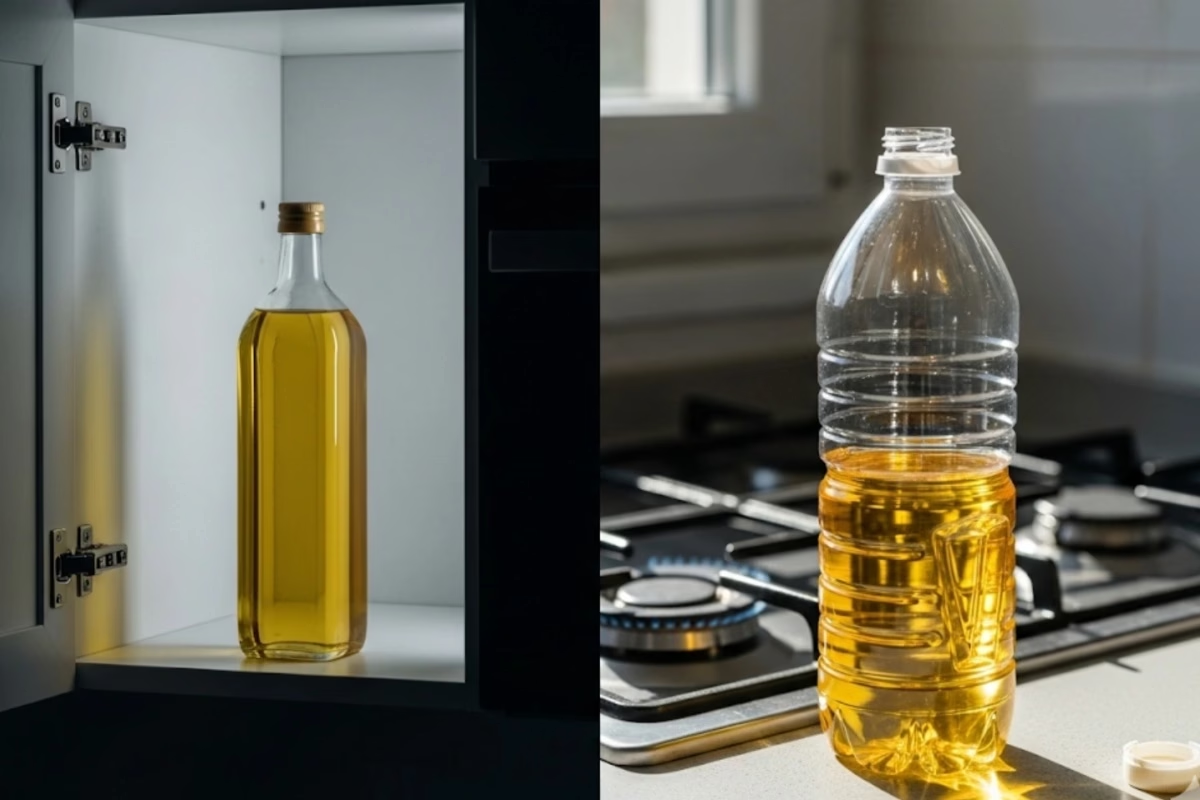Cooking oil is a kitchen essential, but did you know that storing it incorrectly can ruin its quality and even make it harmful? Many of us keep all oils on the countertop without thinking, but not all oils are created equal. Some oils can go rancid or become toxic if left at room temperature for too long.
A recent video shared by health educator Prashant Desai from Stanford School of Medicine highlights exactly how to store different cooking oils safely to keep them fresh, healthy, and toxin-free.
How To Store Your Cooking Oil
Polyunsaturated Oils Need Extra Care
Oils like flaxseed, walnut, sunflower, and other polyunsaturated oils are delicate. They spoil quickly if left at room temperature because they are prone to oxidation. When these oils oxidise, they not only lose their nutritional benefits but can also become toxic. According to Desai, “These oils should always be stored in the refrigerator to maintain their freshness and health benefits.”
So next time you grab your flaxseed or walnut oil, make sure it’s chilling in the fridge.
Monounsaturated Oils Are More Stable
Oils rich in monounsaturated fats, such as olive oil, groundnut (peanut) oil, and avocado oil, are more forgiving. They don’t need refrigeration, but they still need some protection. Keep them in a cool, dark place in your kitchen, away from heat and direct sunlight. This simple step preserves the oil’s quality and prevents it from turning bitter or losing its health benefits.
Saturated Fats Are the Most Robust
Oils high in saturated fats, like ghee and coconut oil, are the most stable. These can safely be stored at room temperature without any special precautions. Their natural composition makes them resistant to spoilage, making them the easiest oils to keep in your pantry.
Practical Tips for Safe Cooking Oil Storage
The key is simple – don’t treat all oils the same. Use the type of fat as your guide:
Polyunsaturated oils = Refrigerate
Monounsaturated oils = Cool, dark place
Saturated fats = Room temperature is fine
Following these storage tips ensures your oils stay fresh, healthy, and safe for consumption. Improper storage not only wastes money but could also affect your health in the long run.
Next time you pour olive oil into a salad or drizzle ghee over your food, take a moment to think about where it’s been stored. A little care goes a long way in keeping your cooking oils fresh and toxin-free.
